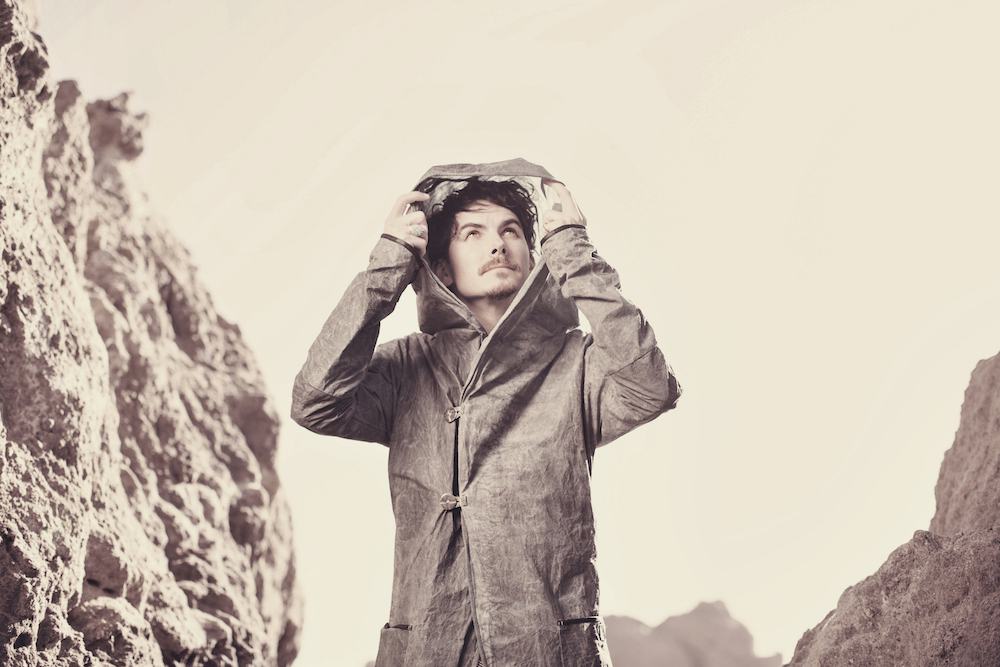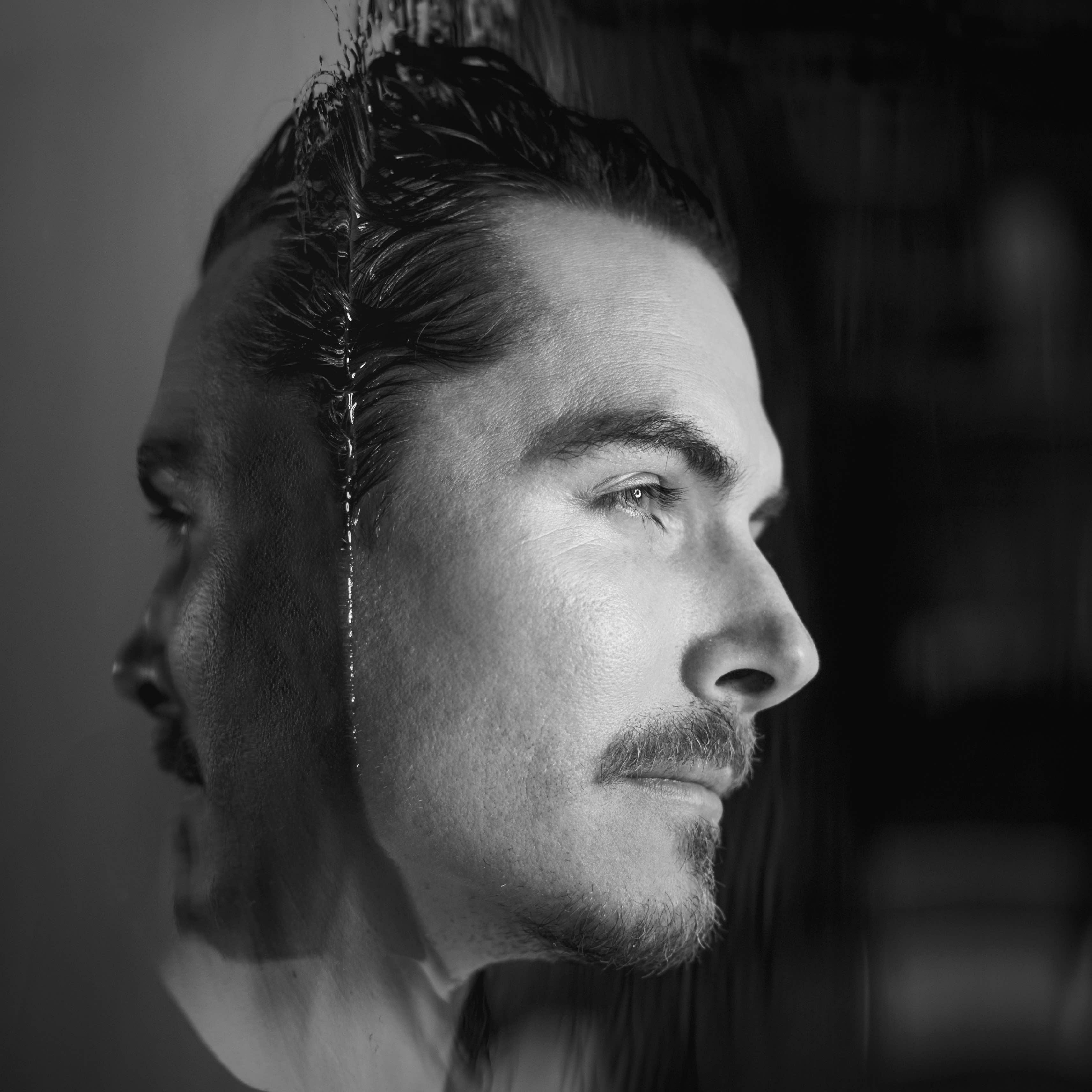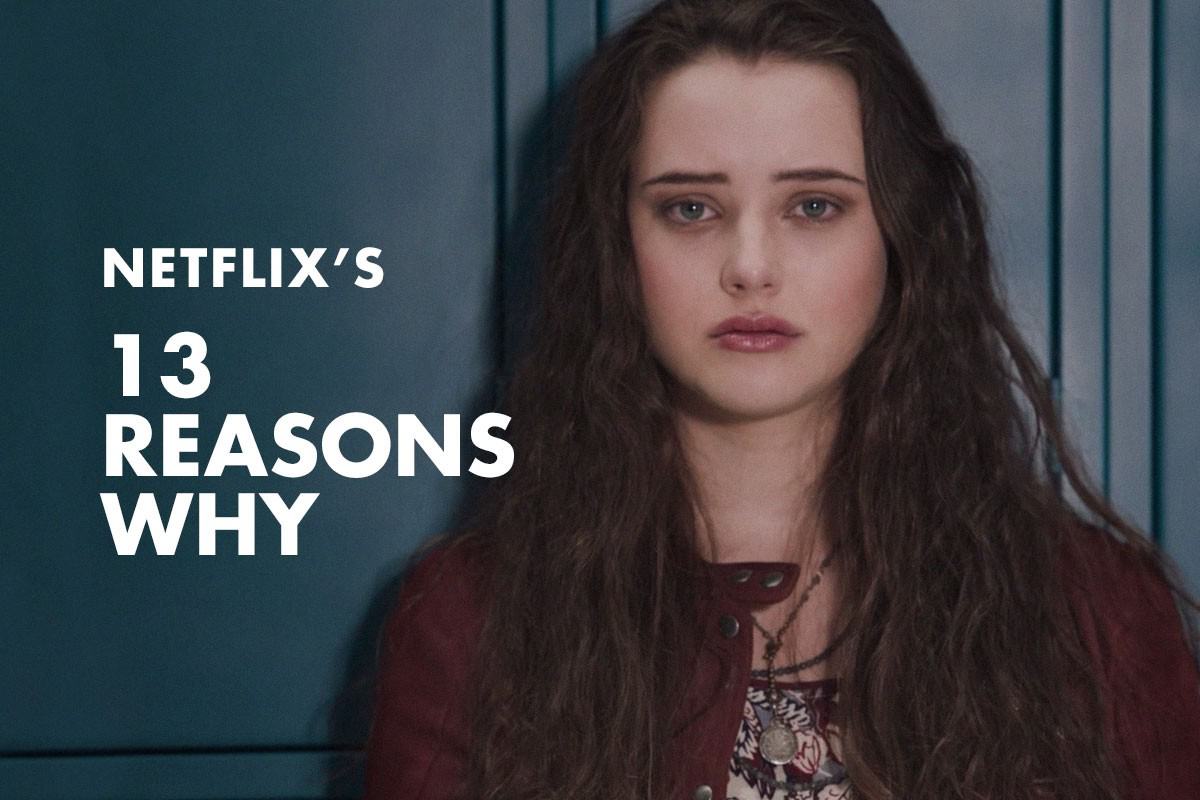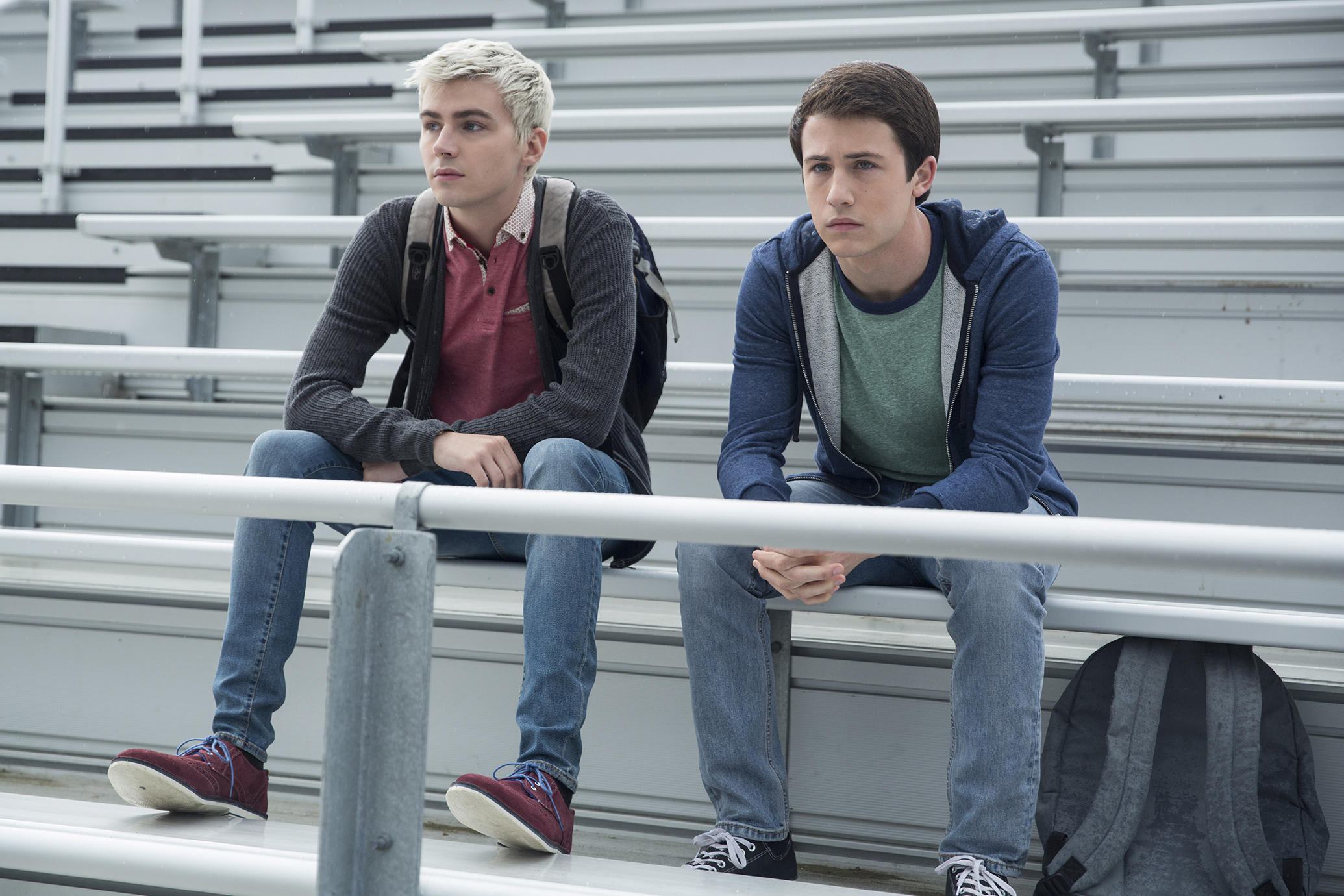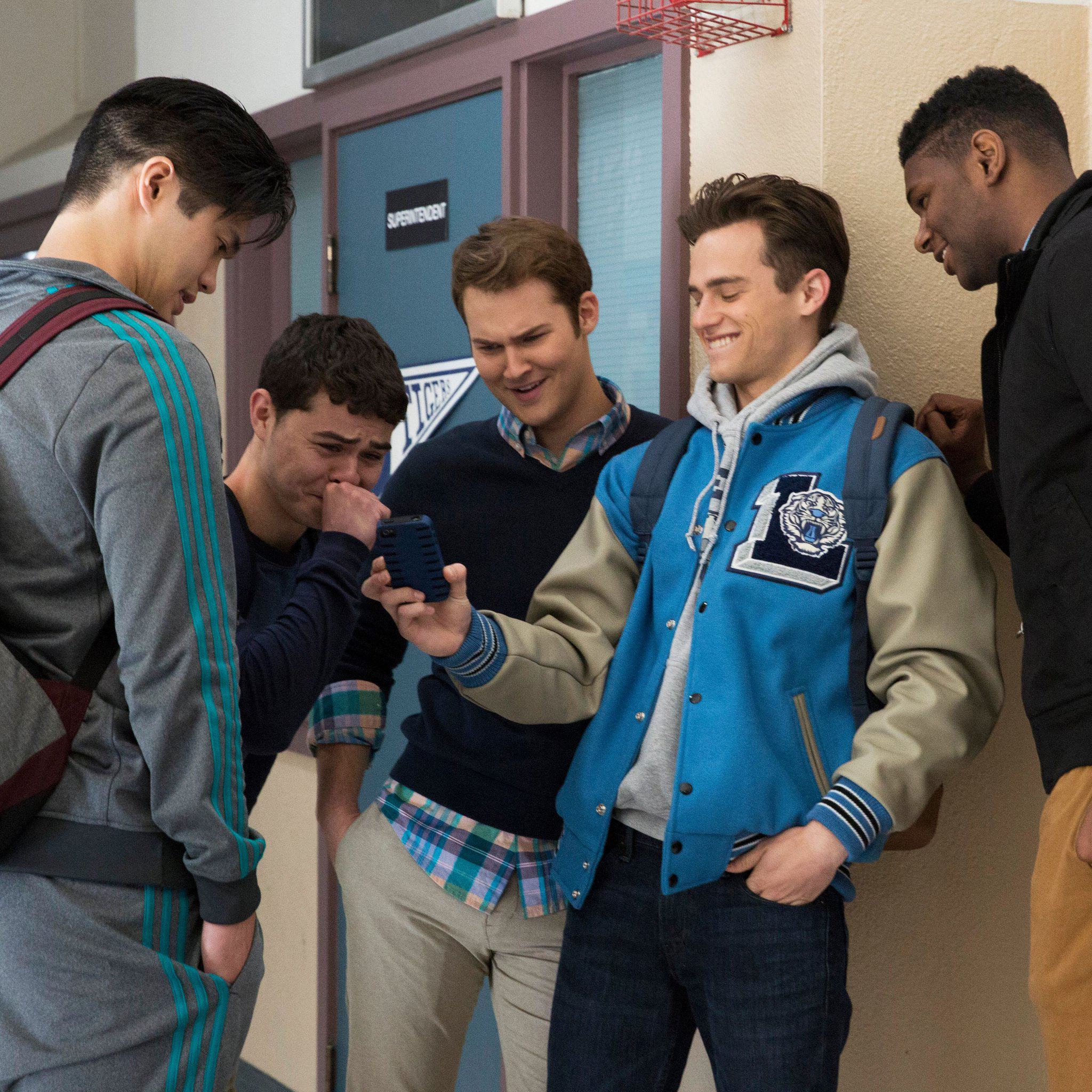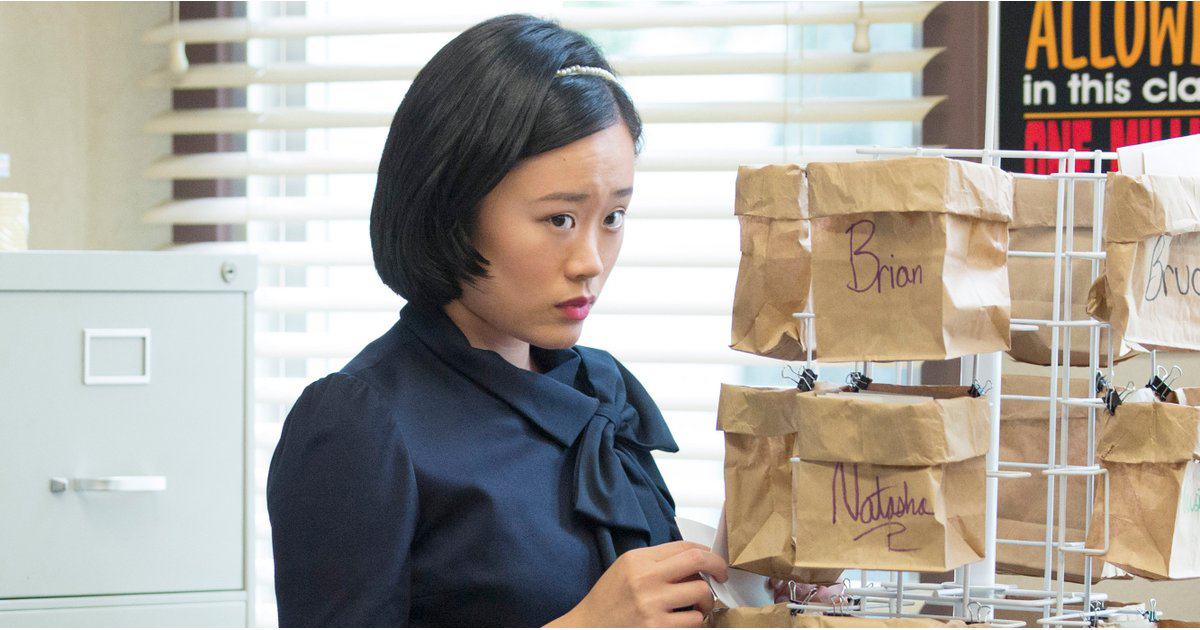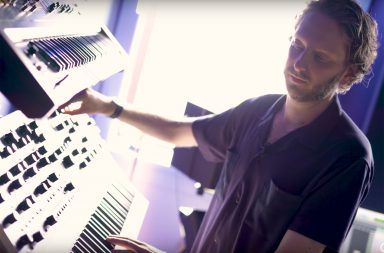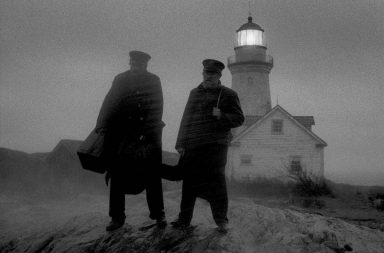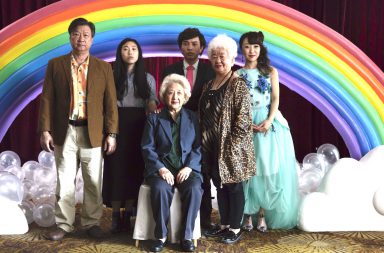As his name suggests, electronic music artist Eskmo’s sound is the epitome of ‘cool’. Indeed, BBC Music has deemed his creations as ‘Electrifyingly enveloping…mind-melting’. The music producer and composer, whose real name is Brendan Angelides, has toured globally as a live electronic act since the late 2000s as Eskmo. The exciting musician is also one of the founding members of The Echo Society, a Los Angeles-based non-profit organization, which aims to inspire, challenge, and enrich the community by creating new sonic and visual art presented at their performances.
Eskmo has recently delved into the world of scoring for the screen, having composed for 13 Reasons Why (Netflix, 2017). The series centres around Hannah Baker, a high school student who commits suicide. She leaves 13 tapes for the 13 individuals who caused her torment, explaining how they lead her to her death. Eskmo’s score for the successful and controversial series is purely magnetic. It is both ethereal and innocent, yet dark and chilling, highlighting the underbelly of Hannah’s world when she was alive. The result is a moving score which sears through the image and leaves a lasting impact on the viewer.
Score It Magazine: How did you initially become involved scoring 13 Reasons Why?
Eskmo: There were a couple of different things that happened. My previous career was doing electronic live touring that I have been putting on as Eskmo for a while. I partnered up with this group called The Echo Society in Los Angeles, which is a group of composers, and we have put on a handful of events in L.A. that merge orchestral and electronic music. That influenced an album which I put out in 2015, which was seen by the showrunner for Billions on NTR. It consequently landed me the job for that. Then, fast forward a little chunk of time: Season Kent, who was the music supervisor for 13 Reasons Why, had seen The Echo Society shows, so she was familiar with my work with them. Natalie Hayden at Paramount was also a fan of my work on Billions, so they both threw my hat into the ring as someone to be considered.
I got called down, and met with Brian Yorkey, the showrunner, and we hit it off musically. I felt that the show was a really awesome idea. It was a pretty quick process: I got hired on the Thursday and started on the Monday.
What was the general process behind scoring the series?
The process was essentially doing spotting sessions with Brian Yorkey to go over each episode, and from there we just pinpointed a general aspect. Brian wanted the score to touch on some nostalgic elements, and very lightly merge in some places with the source licence music that was in the show. Overall, the musical landscape was pretty open. That left me a lot of room for me to explore and do different things with different themes. I had sent over a handful of various ideas when I first saw the pilot, and we basically just went through that stuff, and Brian pointed out the stuff he was really resonating with. I let that be a goalpost for me to go with. Over the course of the whole season, the score started to shift more and more, with some elements pertaining to certain aspects of the story while some new elements came in at other points.
Each episode centres on a different tape left by Hannah which focuses on a particular character. This way the show was constructed really allowed me to tap into these little sections of sounds, with new elements growing from one episode to the next. I continued to add new aspects to the characters’ musical motifs, and allowed that to keep on growing. When I got hired, Hannah’s theme was one of the first things I had started to write. I was able to weave that gently into a few different characters’ themes at certain points in the show.
https://www.youtube.com/watch?v=Ld6T6Uy9oYs
Each character has their own theme in the score. Was this a challenge as a composer? How did you approach this idea?
I’m still fairly new to scoring. I’m not new to music, as I’ve been doing my Eskmo project for a long time, but Billions was my first proper scoring experience. For this, I asked myself: “how can I create themes that are very simple, yet stand on their own?” I think with any art form (like woodworking or painting for instance), particularly with music, there exists the desire to want to do more: making things even busier and having more and more things happening. Ensuring that this score provided something minimal and poignant for each character was a practise for me.
Also, a huge part of a scoring process like this one, where you’re doing a new episode every week, was getting out of my own way. When you’re working on albums, you can be a bit selfish and do exactly what you want with however much time you have. You can spend seven hours on a hi-hat. But, with this kind of project you don’t have that luxury. So, the aim was to create a strong and evocative score, whilst getting out of my own way and allowing the music to do its own thing.
Who was your favourite character to write a theme for?
I was really happy with Clay and Hannah’s pieces, actually. A really surprising one that came out was Clay’s. His song for the score was really just from one episode towards the end of the series, mainly from one scene where he’s sitting in a car and finding out the gravity of what happened. That theme really hit me.
Also, when writing Hannah’s piece, I really felt like I tapped into something that felt very honest for me. It felt creative. I was very happy with Alex’s piece, with Marcus’, surprisingly, and Tyler’s… They all had their own little elements that I was happy with. I was kind of surprised by how a handful of them turned out.
The process of working on the music for the show was very fluid. Brian Yorkey’s communication of what he was hoping for, as well as any kind of guidance, ideas and revisions during the process, were always conveyed very clearly to me. I feel like we were really on the same page, and it flowed right out.
When composing, how did you tackle the series’ layout with its constant flashbacks?
One thing that Brian and I had spoken about initially was this flashback world in the series. In musical terms, there was an aetherial quality to it, and I would go to some floating place while composing. Most notably in an earlier episode where a flashback would take place, the score would be a bit lighter and in a warm place. Helping to guide the viewer to the flashback world as being a separate event to what was happening in the episode’s present was definitely one of the questions we had (musically) as we were going along. The sections of the episodes that took place in the present had a bit more tension and weight to them, and at certain points it actually gets very heavy. Discussing this present aspect was always a part of the conversation between Brian and I. With the music, I tried to create an ethereal quality to score the older parts of the story and the flashback world, using a bit more reverb (echo) effect and gentler, wavy sounds. Then, coming back to the present, the score becomes a bit sharper and more poignant, and those musical ideas associated with the past would fade back away.
Honestly, I have to say that the process wasn’t overly methodical. The general idea was to start off with a warmer score at first. I really just rolled with the episodes as I saw them. I knew the script a little bit beforehand and the general overall story. But for me, I really was just going with it one episode at a time, knowing in general sense the big things that were coming down the pipeline. It was really exciting for me to go along with the series almost as a viewer. I knew that certain plotlines were going in certain directions. I was therefore able to hold off and not let the music get too built into a certain place, whilst knowing that certain points in the story were coming, for instance around Bryce, Tyler or Clay. That meant I could then go full-tilt with the music for those moments. There was a cool opportunity to have both the score and have each character’s theme really evolve, as they were getting deeper into their own personal storylines.
Were you daunted by the fact that your score had to portray dark themes such as rape, suicide and bullying? How did you approach this as a composer?
I have to say, I was a bit intimidated by those sorts of themes that the series was going to explore, most notably, rape. I have never done work for that kind of scene before, being new in this industry. But by the time those themes came around, I was already so immersed in the story and in the characters, that they weren’t very daunting, actually. I was already in a place where the music just kind of came about. In terms of understanding and expressing any sense of bullying or the wide range of issues that the show covers, for me it meant just tapping back into high school, and my own experience and version of it. I remember that high school was not easy, at all. It was tough.
I think one of the things that was done really well in the series was that it didn’t sugarcoat the kids’ experiences. It didn’t shy away from showing the rough stuff, and didn’t make the kids out to be just naive youngsters that are superficial and shallow. They had a lot of depth to them. There was a feeling, at least from me, that each character had their own version of events which had a lot of depth. Take Justin, for example. He can be one of the bad guys, doing some shady stuff and involved in whatever. Despite this, it came about naturally for me to actually want to create something super soft for him, as a musical motif that would come in and out a few times in the series. So, it felt right to portray this kid as somebody who was genuinely wanting to do right, but just not really strong enough to stand up for himself, because he has his own family issues going on. I think he was a good example that also happened in a handful of places throughout the series. Through the score, I tried to create the inner landscape of the characters, not necessarily just what was happening on the outside.
The score begins with a heavy emphasis on electronic sounds, but strings and piano appear more prevalent later on. What was your thought process behind this development?
That was part of a natural process, for instance with the use of keys. Hannah’s theme is very key-orientated. The piano was something that came in just gently, and I remember that Brian was really excited about that prospect. Very distinctly, a lot of the piano came in around episode five or six, which featured a lot of Courtney, and then it started to develop into some other things. I was really able to touch upon it with Hannah’s parents: I would actually play Hannah’s theme with gentle piano, played much softer and slowed down.
It was something that felt natural and also helped to balance out the electronic side of the score and also some of the tougher elements, like the Jessica side of things which dealt with rape. One of the things that I did for that oral world was using some really bending, brittle yet fragile strings. So, I feel like the piano was a good balance to that, adding a soft and emotive side. To me, the goal was to try to create something that felt classic and comfortable, warmer, and also a bit more sad and soft, in order to balance out some of the electronic elements that were happening.
How much direction did you get for your score, and from who?
Right at the beginning of the process and in general terms, I know Selena Gomez had some input. But any direction would have been from Brian Yorkey, in terms of the day to day aspect and going through the episodes. In general, he guided me. He was really excited when I brought in any kind of guitar or when I brought the piano in.
As I can imagine, at first, our work together was just like that of any show. I’d say that there was a lot more of the fine-tuned minutia of really getting things dialed in and finding the exact world we were looking for. Once we were rolling, Brian was super supportive of the stuff I was handing in, and helped to guide me along. Sometimes if I came at things at the wrong angle, he would just nudge me to go in the direction he was wanting to convey a certain something, for the viewers to feel a certain thing. There was always a very free landscape. It was awesome.
The score is perfectly appropriate to the series. Did you draw inspiration from any other artists when working on the composition?
No, not really. As I said, I’m new in this field, and I have so much to learn, particularly in the scoring world. Because I’m doing more of this stuff, there have been so many times during conversations when people ask who my favourite composers are, and I have no idea, to be honest. It’s something I’m learning more about.
I am probably inspired by a bunch of my own background of electronic music and the recording world. But for 13 Reasons Why, there wasn’t any particular sound I was going for. All that I was generally aware of was that I had seen a couple of episodes of Stranger Things , and I knew that was such a big franchise. I wanted to make sure that 13 Reasons Why had a very different voice from that series. Even though there was also a sense of general nostalgia and a sense-orientated world in the score for Stranger Things, I wanted to make sure that my score for 13 Reasons Why did not convey that side of nostalgia, which is a particular type of aesthetic. What Michael Stein and Kyle Dixon did for that series was awesome and fits that world, but I wanted to make sure that 13 Reasons Why had its own voice. Aside from that, I just kind of went for it, to be honest.
How was scoring this series different to your other work, notably the TV series drama Billions and comedy film The Master Cleanse?
For Billions, the score was much less theme-orientated. The music was more of a churning, aesthetic-driven presence happening in the background, which builds up in certain places and gets really intense. It tended to be more sound-design heavy, sometimes testosterone-fuelled, and a bit more raw.
There’s a track on the Billions soundtrack that we released, and I named it ‘Everyone is Afraid of Being Vulnerable’. There are a lot of elements in that show which convey that feeling: characters are afraid of being vulnerable, putting on a false front. I feel that with 13 Reasons Why, obviously the same thing was happening: the kids are afraid of being vulnerable. But, at the same time, I was able to create these very emotional themes for them by trying to evoke something deeper happening inside of them, whether it was fragility or also strength.
In addition, Billions had a whole different storyline, so there was a different way of working on the score. There was a different intention that the showrunners wanted to achieve with the story and with the feeling that the viewers got out of it. That was exciting in its own way, but it’s simply a different process.
Master Cleanse was a project I did with Rob Simonsen, who is also in The Echo Society. He basically brought me into the film, asking me if I wanted to try scoring a film, and I said yes. That was a very relaxed and actually really long process, because the film had some edits to it, and we just rolled along with it. It was a collaborative, gentle kind of work.
Billions was a very different process because there was an episode every two weeks, compared to 13 Reasons Why which was one episode every week. But overall, they’ve all been rewarding in their own ways, just different. I feel like I’m learning so much.
Can you tell us about your upcoming projects?
As of right now, I’m going to be diving into Billions season 3, and then 13 Reasons Why season 2, and we have another Echo Society show that we’re planning for later this year. We have only done five shows, and each of them has sold out. The last one we did was at this space called the Apex Theatre in LA. Each one of those we do in these strange venues: we did one in a church, one in a warehouse, the last one in a theatre. So for me, that’s pretty much my musical world, preparing for the shows that are coming up right now. I’m also working on my own album right now, as well as an album with a friend called Kira Kira, who is an Icelandic artist. I’m also in the process of moving houses, which is taking up a huge part of my focus right now.
The entire score, released on Interscope Records, is available to listen below:
Interview prepared, conducted and transcribed by Amalia Morris.
Edited by Marine Wong Kwok Chuen.
